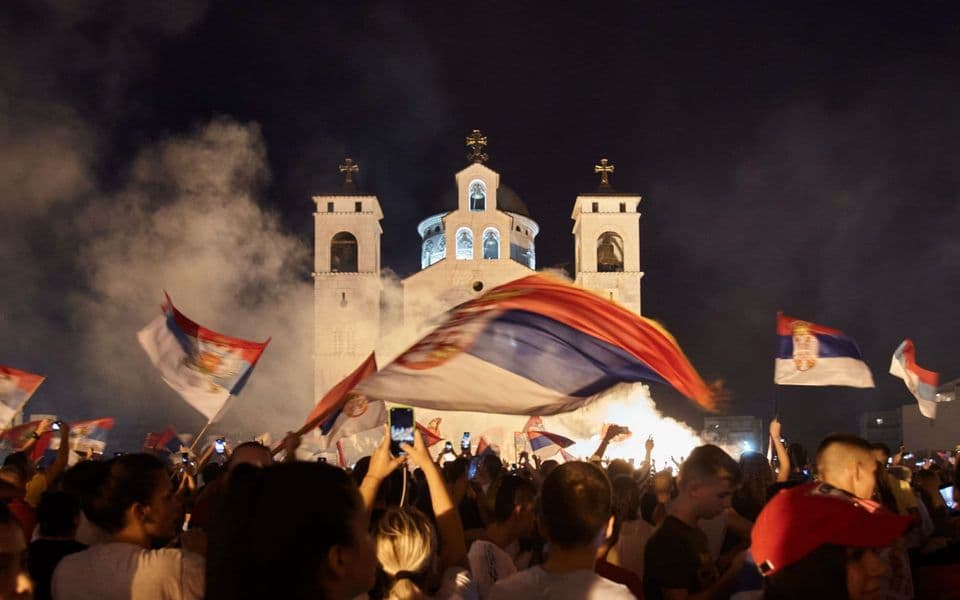Lifestyle
Serbia’s Church Controversy Sparks Call for Open Debate

A significant debate has emerged regarding the historical and current status of the Serbian Orthodox Church, particularly its operations in Montenegro. This discussion has been ignited by assertions that the church operates as an “usurper” in the region since its introduction in 1918.
The Serbian Orthodox Church, recognized as an autocephalous institution of the Republic of Serbia, faces challenges regarding its nomenclature and legitimacy. Advocates argue that referring to it as the “Church of Serbia” or “Orthodox Church in Serbia” is not only accurate but essential within the historical context. The church’s presence in Montenegro has been contentious, with claims that its influence has been mismanaged since its establishment there.
In a recent public statement, a representative of the church called for a transparent discussion on the issue, challenging those who manipulate the narrative surrounding the church’s role. The representative emphasized the importance of addressing these claims publicly, inviting critics to engage in an open media dialogue.
The issue touches upon broader themes of identity and sovereignty, particularly in the wake of the region’s complex historical ties. The church is not merely a religious institution but also a significant cultural and political entity. The ongoing debate reflects deep-rooted sentiments and varying interpretations of history that continue to shape the present-day dynamics between Serbia and Montenegro.
As discussions unfold, both supporters and detractors of the church’s position continue to voice their opinions. The call for an open debate may provide a platform for clarity and resolution regarding the church’s identity and its historical claims.
This situation remains fluid, with reactions expected from both sides. The implications of the church’s status extend beyond religious boundaries, affecting national pride and historical narratives in the region.
Engaging in this conversation may lead to a better understanding of the historical and ideological underpinnings of the Serbian Orthodox Church’s role in Montenegro and its significance to the Serbian state.
-

 Entertainment2 months ago
Entertainment2 months agoIconic 90s TV Show House Hits Market for £1.1 Million
-

 Lifestyle4 months ago
Lifestyle4 months agoMilk Bank Urges Mothers to Donate for Premature Babies’ Health
-

 Sports3 months ago
Sports3 months agoAlessia Russo Signs Long-Term Deal with Arsenal Ahead of WSL Season
-

 Lifestyle4 months ago
Lifestyle4 months agoShoppers Flock to Discounted Neck Pillow on Amazon for Travel Comfort
-

 Politics4 months ago
Politics4 months agoMuseums Body Critiques EHRC Proposals on Gender Facilities
-

 Business4 months ago
Business4 months agoTrump Visits Europe: Business, Politics, or Leisure?
-

 Lifestyle4 months ago
Lifestyle4 months agoJapanese Teen Sorato Shimizu Breaks U18 100m Record in 10 Seconds
-

 Politics4 months ago
Politics4 months agoCouple Shares Inspiring Love Story Defying Height Stereotypes
-

 World4 months ago
World4 months agoAnglian Water Raises Concerns Over Proposed AI Data Centre
-

 Sports4 months ago
Sports4 months agoBournemouth Dominates Everton with 3-0 Victory in Premier League Summer Series
-

 World4 months ago
World4 months agoWreckage of Missing Russian Passenger Plane Discovered in Flames
-

 Lifestyle4 months ago
Lifestyle4 months agoShoppers Rave About Roman’s £42 Midi Dress, Calling It ‘Elegant’









